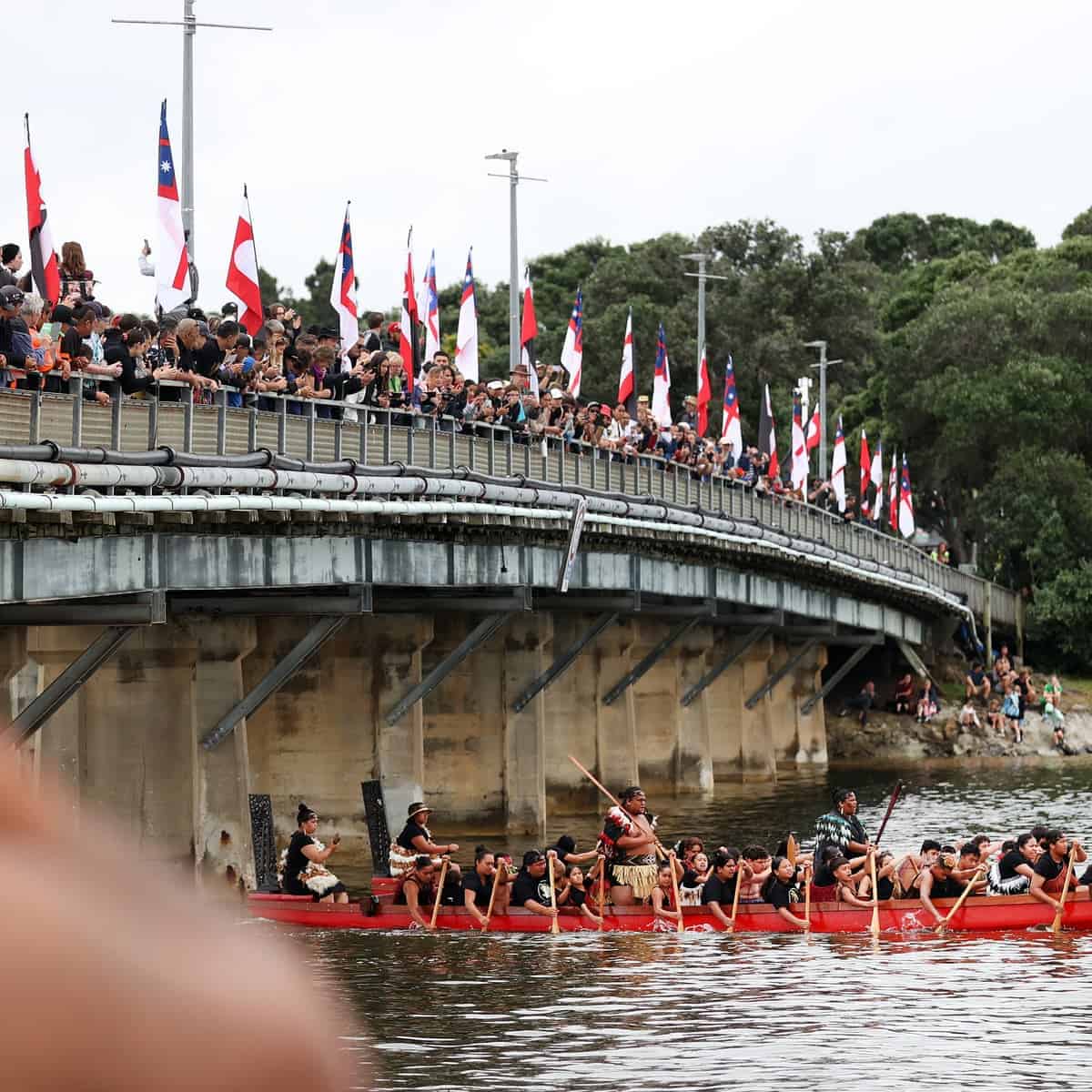What is Waitangi Day in New Zealand? A Comprehensive Guide for Parents
Hey there, awesome parents! Are you looking to teach your kids about one of New Zealand’s most significant national holidays? Well, you’ve landed in the perfect spot! Waitangi Day is not just a day off from school or work—it’s a powerful historical moment wrapped up in a day of reflection and, of course, fun! Let’s take a vivid journey into the heart of Aotearoa’s heritage and see what makes Waitangi Day a unique and pivotal part of New Zealand’s identity.
A Little Background on Waitangi Day
First things first: Waitangi Day is celebrated every year on February 6th, commemorating the signing of the Treaty of Waitangi in 1840. But hold on, what is the Treaty of Waitangi, and why is it so important? In a nutshell, it’s considered the founding document of New Zealand, an agreement between the British Crown and M?ori chiefs that shaped the country’s future.
For your curious kiddos, think of the Treaty as a sort of big promise – a handshake deal between two groups who wanted to live together on the same land. It’s a promise that’s still being talked about (and debated) today because it affects people’s rights, the beautiful land of New Zealand, and how everyone gets along!
Fun and Learning on Waitangi Day
Waitangi Day isn’t just about history; it’s about bringing that history to life! Across New Zealand, people, families, schools, and communities celebrate with events that range from serious and ceremonial to light-hearted and hands-on. Talk about a mix of learning and laughter! There are traditional M?ori performances, historical reenactments, and even cool craft workshops. Imagine getting your hands dirty creating some traditional art or weaving – it’s all about experiencing the culture first-hand!
As parents, you’ve got a fabulous option to open your kids’ minds to new experiences, and what better way than through immersive activities that celebrate New Zealand’s cultural mosaic? Take the day to visit a local marae (a M?ori meeting ground), where you can get a first-hand look at the vibrant indigenous culture.
The Soul of the Celebration: Key Locations for Waitangi Day
When it comes to witnessing Waitangi Day in full swing, there’s no place like the Bay of Islands, where the actual treaty was signed. The Treaty Grounds in Waitangi become a vibrant hub, buzzing with life. It’s like stepping into a time machine! There’s live music, dance, and food that’ll have your kiddos wide-eyed and eager to taste and participate.
But the beauty of this day is that no matter where you are in New Zealand, there’s a piece of Waitangi Day to find and treasure. Be it in the bustling streets of Auckland with its myriad of family-friendly activities or the serene parks of smaller towns hosting fairs and picnics, this day has something for everyone.
Now, don’t worry if you can’t make it to the epicenter of the celebrations—it’s a nationwide affair! Local communities usually organize their own festivities, making the spirit of Waitangi accessible to all, regardless of location. Local libraries and community centers often host storytelling sessions about the treaty and its significance, which is perfect for the little bookworms in your family who love a good story.
And let’s not forget education. Yes, learning can be fun, too! Many museums across New Zealand host special Waitangi Day exhibits. They’re perfect venues for a family outing, providing interactive ways for kids to digest the importance of this special day, through games, quizzes, and multimedia presentations. Think about it, your children could be future kaitiaki (guardians) of this country’s history!
Stay with us as we delve deeper into the myriad of ways Waitangi Day is celebrated and ways to make it both meaningful and memorable for your beloved tamariki (children). From discovering the nuances of the Treaty to engaging in delightful Waitangi Day crafts and recipes, this guide is your ultimate companion to enjoying a day rich in culture, history, and family bonding. Next up, we’ll explore the historical significance of Waitangi Day and why it’s much more than just a day off—it’s a cornerstone of New Zealand’s national identity.
Prepare for a journey filled with discovery, empathy, and joy as we continue to unlock the wonders of Waitangi Day together!

Five Things Parents Should Know in Preparing for Waitangi Day in New Zealand
Embracing Waitangi Day with your family is a chance not only to take part in a meaningful celebration but also to educate and inspire. Here’s what to keep in mind:
- Understanding the Treaty’s History: Before the festivities, take a moment to explain to your children the significance of the Treaty of Waitangi. Provide them with a basic understanding of New Zealand’s history and how the Treaty has played a part in shaping the relationship between M?ori and non-M?ori people in New Zealand.
- Participating in Local Events: Research local events in advance and plan your day. With many towns and cities hosting parades, talks, and performances, you can choose activities that are age-appropriate and interesting for your children. Getting involved in community events can be an enjoyable way for the whole family to learn and celebrate together.
- Experiencing M?ori Culture: Waitangi Day is an excellent opportunity for your family to experience M?ori culture firsthand. Seek out opportunities for your children to watch kapa haka (M?ori performing arts), try traditional foods like hangi (a traditional M?ori method of cooking food using heated rocks buried in a pit oven), or participate in a powhiri (a M?ori welcoming ceremony).
- Educational Opportunities: Use this day to educate your children about the significance of the Treaty and its principles. Visit museums or cultural centers where special programs are arranged for families and children to learn more in an interactive setting.
- Respect and Reflection: While Waitangi Day is a day of celebration, it’s also a time for reflection. Encourage your children to think about the importance of respect, unity, and how the Treaty’s principles apply to modern day life in New Zealand. Engage in conversations about the ongoing treaty settlement process and what it means for the future of the country.
Remember, Waitangi Day is as much about understanding the past as it is about celebrating the diverse and dynamic culture of New Zealand today. With these tips, you can help your children embrace the spirit of the day, appreciate the rich history of their country, and enjoy a day filled with cultural significance and family fun.
Now you’re all set! You’ve got the knowledge and the know-how to make Waitangi Day an unforgettable experience for you and your kiddos. So grab your calendar, start the planning, and get ready for an adventure into the heart of New Zealand’s culture and history. And don’t forget to take lots of pictures – these are the moments that turn into precious family memories!
As we continue with our guide, we’ll prepare you with even more details about specific events, fun activities, and learning resources to ensure your family’s Waitangi Day is not only educational but absolutely enjoyable!
Get ready to mark your calendars and create a new family tradition as we dive deeper into celebrating Waitangi Day with your tamariki!
See more great Things to Do with Kids in New Zealand here. For more information see here
Disclaimer
The articles available via our website provide general information only and we strongly urge readers to exercise caution and conduct their own thorough research and fact-checking. The information presented should not be taken as absolute truth, and, to the maximum extent permitted by law, we will not be held liable for any inaccuracies or errors in the content. It is essential for individuals to independently verify and validate the information before making any decisions or taking any actions based on the articles.




